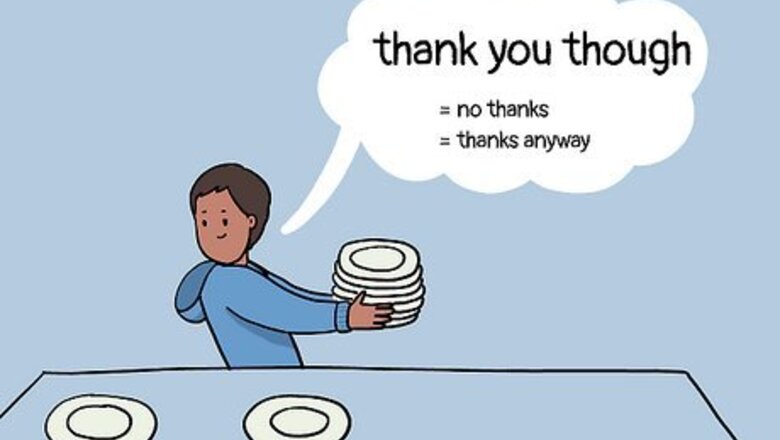
views
- “Thank you though” is a phrase used to politely say “no thank you.”
- If someone says, “Thank you though,” you can respond with “Let me know if you change your mind!” or “Thanks for considering it.”
- “Thank you though” is rarely used negatively, but it may be considered rude if said with a condescending or mocking tone.
What does “thank you though” mean?
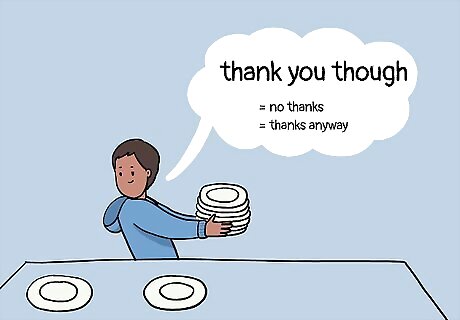
When someone says “thank you though,” they're politely refusing something. “Thank you though” is another way of saying “no thanks” or “thanks anyway.” The person is grateful for the offer, help, or recommendation even though they’re declining assistance. In other words, “thanks though” is a phrase used to nicely thank someone for an offer you don’t accept. For instance, let’s say your sibling asks, “Do you need help setting the table?” A polite response would be, “No, I’ve got it covered. Thanks though!” As another example, let’s pretend you’re going to the movies, and a friend texts you, “I can give you a ride if you’d like.” You could reply, “I’m going to carpool with my brother. Thank you though!” “Thank you though” and “thanks anyway” can be used interchangeably—they mean the same thing. For instance, “I already have dinner plans. Thank you, though” and “I already have dinner plans. Thanks anyway” are synonymous.
How to Respond to “Thank You Though”
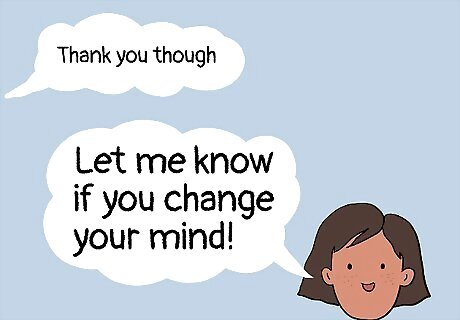
“Let me know if you change your mind!” Let them know that your offer still stands with this response. This is an excellent way to remain polite and supportive without dismissing their initial refusal. If they change their mind and need help, they’ll know to come to you. As a more formal option, try saying, “The offer still stands.” This is a great alternative for speaking to a boss or coworker.
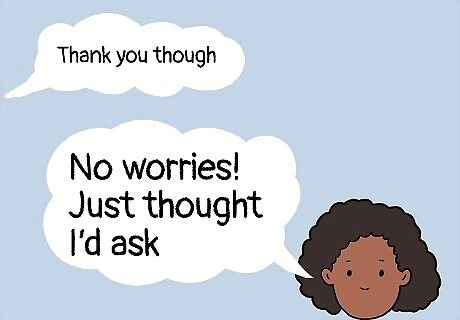
“No worries! Just thought I’d ask.” Imply that you’re looking out for them with this casual response. A simple “Just checking!” or “I thought I’d ask” can tell a friend, relative, or colleague that you have their best interest at heart, no matter their refusal.
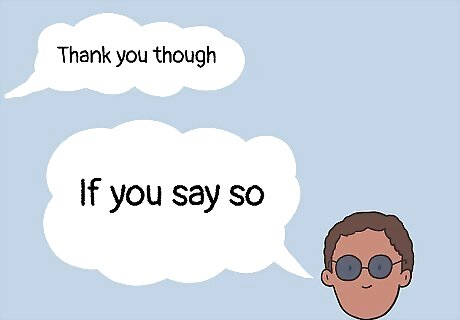
“If you say so.” Use this casual and informal response with friends and family if you disagree with someone’s decision. More often than not, “thank you though” is used to respond to a helpful offer. If a loved one refuses an offer you think they need, consider shrugging and saying this to imply, “I disagree but don’t want to argue.” Keep in mind that this response could be considered rude if it’s used outside of causal situations with people you don’t know well. For instance, steer clear of replying to a boss or stranger with “If you say so.”
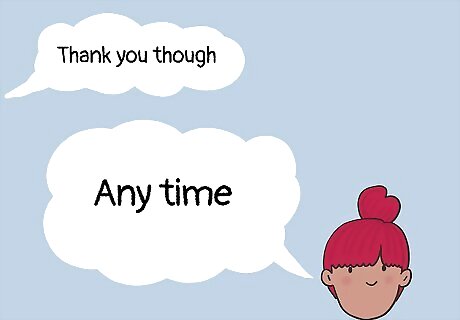
“Any time.” Let a friend or loved one know you always have their back with this friendly reply. Paired with a smile, shrug, or thumbs up, an “Any time!” response can be casual, polite, and sweet.
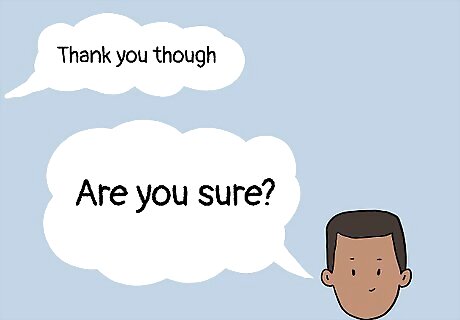
“Are you sure?” Consider pressing the matter if you think the offer they refused is good for them. While this response can be a bit polarizing, it can be helpful for those who are indecisive. Just keep in mind that this persistence could be annoying to others.
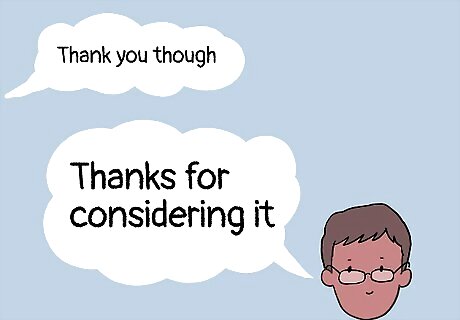
“Thanks for considering it.” Offer this polite response and a smile in a formal setting. This is an excellent way to respect their choice without pressing for more details or being too persistent. Alternatively, you can say “Thank you for your time” to remain professional in a formal setting. This is an excellent option if you’re emailing a boss, coworker, or potential employer.
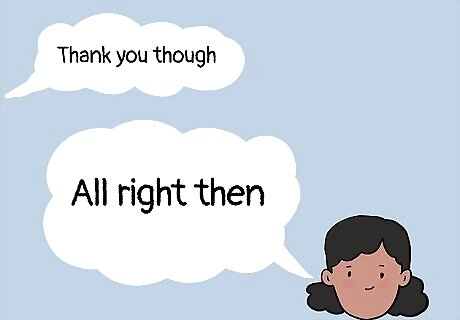
“All right then.” Give this casual response to friends or family if they refuse an offer. This response is laid back and super chill, so it pairs nicely with a shrug or thumbs up. In other words, it’s a way to inexplicably say, “Suit yourself.”
Is “thank you though” rude to say?
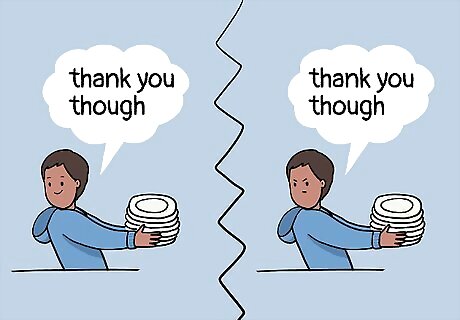
“Thank you though” is typically a polite response, not a rude one. When someone says “thank you though” or “thanks though,” they’re being polite and refusing help in a nice way. However, there could be instances when it’s used condescendingly. Consider the context of the conversation, your relationship with the person, and the tone of their voice. More often than not, “thank you though” is a polite phrase, but it could be used to be ill-spirited. For example, let’s go back to our previous example. Say you and your sibling are fighting about chores. If they ask if you need help setting the table, you could respond with a snippy, “No, I got it. Thanks though,” if you’re upset with them. Look out for curt or short words and sarcastic or mocking tones, which are often patronizing or condescending.



















Comments
0 comment